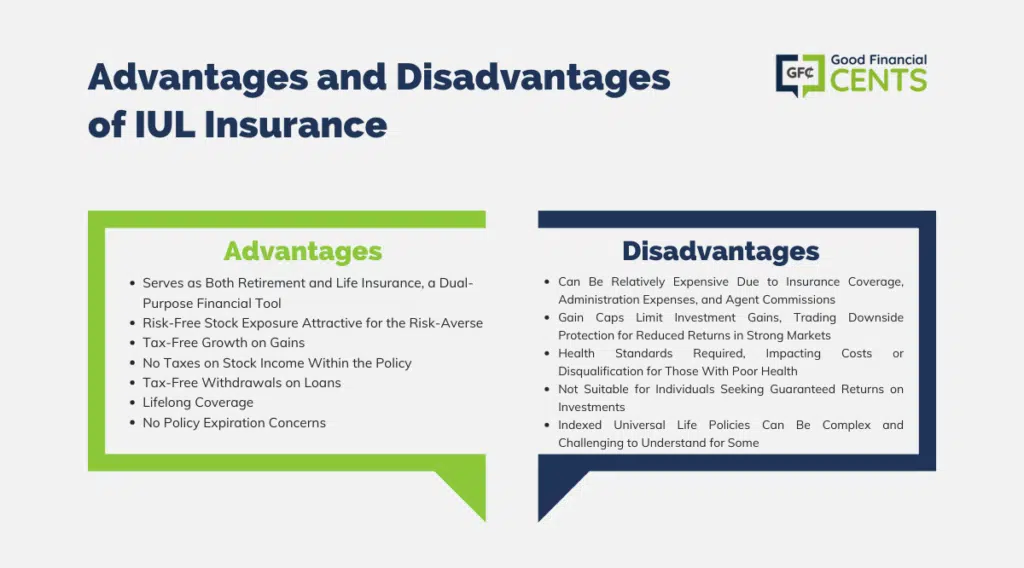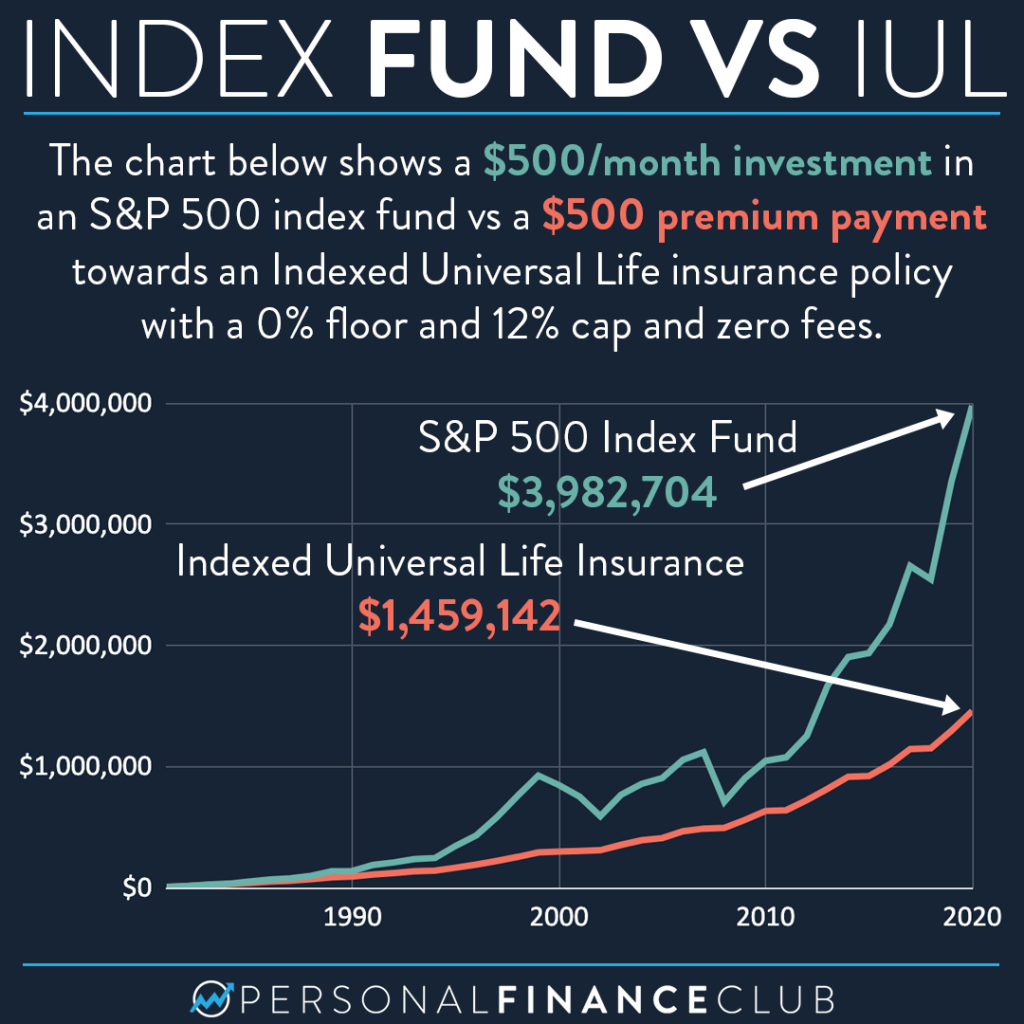All Categories
Featured
Table of Contents
Indexed Universal Life (IUL) insurance coverage is a kind of long-term life insurance coverage plan that incorporates the functions of standard global life insurance coverage with the capacity for money worth development linked to the efficiency of a stock exchange index, such as the S&P 500 (IUL loan options). Like various other kinds of permanent life insurance, IUL provides a death benefit that pays out to the recipients when the insured dies
Cash value buildup: A section of the costs repayments goes right into a cash money value account, which earns passion over time. This cash worth can be accessed or obtained against during the policyholder's life time. Indexing alternative: IUL plans use the chance for money value development based upon the performance of a stock exchange index.
What is a simple explanation of Indexed Universal Life Policyholders?
Just like all life insurance policy products, there is also a set of threats that policyholders should know before considering this sort of plan: Market risk: One of the primary dangers related to IUL is market danger. Since the money worth growth is linked to the performance of a stock exchange index, if the index chokes up, the cash money value may not grow as expected.

Enough liquidity: Insurance policy holders must have a secure monetary scenario and fit with the exceptional repayment requirements of the IUL policy. IUL permits flexible premium repayments within certain restrictions, but it's vital to maintain the policy to guarantee it attains its desired objectives. Interest in life insurance policy protection: People who require life insurance policy coverage and a rate of interest in money value growth might find IUL appealing.
Prospects for IUL ought to have the ability to comprehend the auto mechanics of the policy. IUL may not be the very best alternative for people with a high tolerance for market threat, those who prioritize low-cost investments, or those with even more instant monetary demands. Consulting with a certified financial expert who can offer individualized guidance is essential prior to thinking about an IUL plan.
All registrants will receive a schedule invite and link to sign up with the webinar by means of Zoom. Can't make it live? Register anyhow and we'll send you a recording of the presentation the following day.
What is included in Iul For Retirement Income coverage?
You can underpay or avoid costs, plus you may be able to adjust your death benefit.
Cash worth, along with possible growth of that worth through an equity index account. A choice to allot part of the cash value to a fixed passion alternative.
Insurance holders can determine the percentage assigned to the taken care of and indexed accounts. The worth of the chosen index is videotaped at the beginning of the month and compared to the worth at the end of the month. If the index raises throughout the month, rate of interest is contributed to the cash money value.
The 6% is increased by the cash money worth. The resulting passion is contributed to the money value. Some policies determine the index obtains as the amount of the adjustments through, while other plans take an average of the everyday gains for a month. No interest is credited to the cash money account if the index decreases as opposed to up.
Who are the cheapest Flexible Premium Iul providers?
The rate is set by the insurer and can be anywhere from 25% to greater than 100%. (The insurance provider can likewise change the participate rate over the lifetime of the plan.) If the gain is 6%, the participation price is 50%, and the existing money worth total is $10,000, $300 is added to the money worth (6% x 50% x $10,000 = $300).
There are a variety of benefits and drawbacks to consider prior to purchasing an IUL policy.: Just like conventional universal life insurance policy, the policyholder can enhance their premiums or reduced them in times of hardship.: Quantities attributed to the cash value grow tax-deferred. The cash money worth can pay the insurance premiums, enabling the insurance policy holder to minimize or quit making out-of-pocket costs payments.
Iul Tax Benefits
Many IUL plans have a later maturation day than various other types of universal life policies, with some ending when the insured reaches age 121 or even more. If the insured is still active at that time, plans pay out the survivor benefit (but not typically the money value) and the profits may be taxable.

: Smaller policy face values do not offer much advantage over routine UL insurance coverage policies.: If the index goes down, no passion is credited to the cash value.
With IUL, the objective is to make money from higher activities in the index.: Due to the fact that the insurance coverage firm only purchases alternatives in an index, you're not directly purchased supplies, so you do not benefit when firms pay returns to shareholders.: Insurers fee costs for managing your money, which can drain pipes cash money value.
How do I compare Indexed Universal Life Premium Options plans?

For many people, no, IUL isn't far better than a 401(k) - Tax-advantaged Indexed Universal Life in regards to conserving for retired life. The majority of IULs are best for high-net-worth individuals seeking ways to minimize their gross income or those that have maxed out their other retirement alternatives. For everybody else, a 401(k) is a far better investment vehicle due to the fact that it doesn't bring the high charges and costs of an IUL, plus there is no cap on the amount you might earn (unlike with an IUL policy)
, the revenues on your IUL will certainly not be as high as a common investment account. The high price of premiums and fees makes IULs pricey and substantially less inexpensive than term life.
Indexed universal life (IUL) insurance coverage supplies cash money value plus a death benefit. The cash in the cash value account can earn passion via tracking an equity index, and with some typically assigned to a fixed-rate account. Indexed universal life policies cap how much money you can accumulate (typically at much less than 100%) and they are based on a possibly unstable equity index.
Who are the cheapest Indexed Universal Life Interest Crediting providers?
A 401(k) is a better choice for that objective since it does not lug the high fees and costs of an IUL plan, plus there is no cap on the quantity you might earn when invested. Most IUL plans are best for high-net-worth individuals seeking to lower their taxable revenue. Investopedia does not provide tax, financial investment, or economic services and guidance.
If you're thinking about purchasing an indexed global life plan, first speak with a financial advisor that can describe the subtleties and give you an exact picture of the actual potential of an IUL policy. Ensure you understand how the insurance company will determine your rate of interest, incomes cap, and costs that could be examined.
Latest Posts
Equity In Life Insurance
Why Universal Life Insurance Is Bad
Index Life Insurance Companies